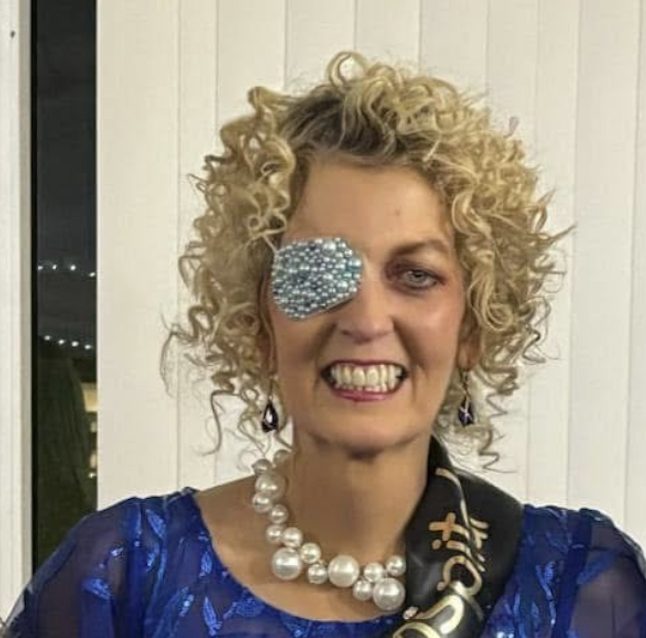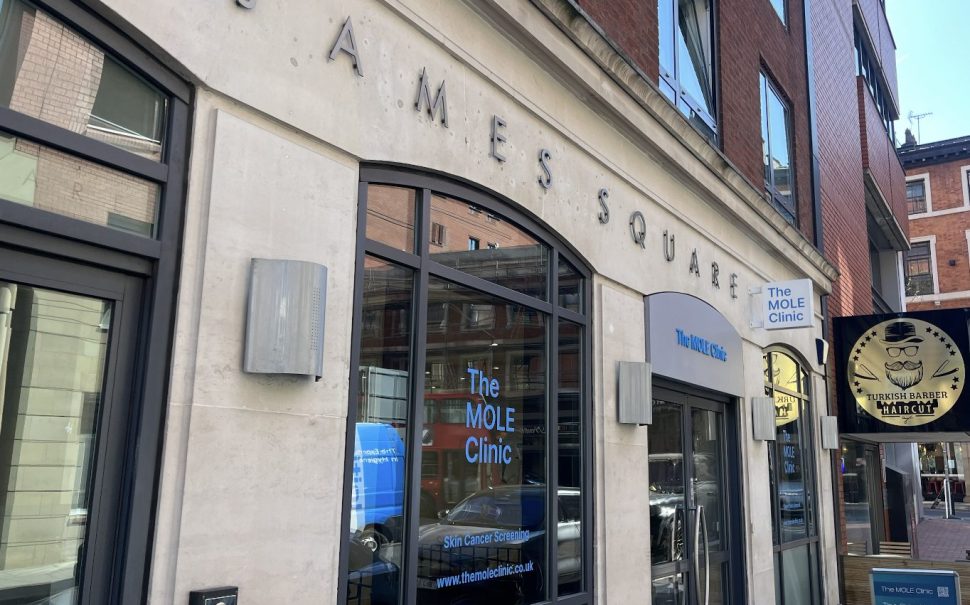The first Covid-19 lockdown at the end of March 2020 was a pretty bleak time for everyone in Britain, with health worries at the forefront of everyone’s mind – so it wasn’t the ideal moment to find a strange mark on my foot.
An unusual dark, speckled blemish suddenly appeared, apparently out of nowhere – and it didn’t look like anything else on my body.
I sent some photos across to my GP and they gave me a little bit of advice over the phone – but I wasn’t referred to a specialist or put in for any tests, and the issue was never really resolved.
Since then I have noticed a few other new blemishes pop up too.
So five years on, when I was offered the opportunity as a journalist to review the MOLE Clinic in Manchester – a private skin cancer screening clinic – I jumped at the opportunity.
It’s not just me with concerns about unusual marks on my skin, of course. And occasionally the concerns are justified.
Melanoma skin cancer incidence rates in the UK have increased by almost a third over the last decade, with figures at an all-time-high across all age groups, according to Cancer Research UK.
And there is no current national skin cancer screening programme in the UK.
This issue is particularly relevant to the North West, as North West Cancer Research reports that people in the region are 13% more likely to develop skin cancer.
Alastair Richards, CEO of North West Cancer Research, told ITV that this is not due to a lack of resources – but a failure to spot the signs of skin cancer soon enough.
With skin cancer survival so dependent on early diagnosis, clinics like the MOLE Clinic play a vital role by offering potentially life-saving services that aren’t universally available on the NHS.
I had been booked in for the Full-body Skin Check service – ordinarily priced at £195 and covered by some healthcare insurance policies.
I arrived and was briefly seated in the waiting area.
Far from the clinical, the room was bright and open, with comfortable sofas, lifestyle magazines, biscuits and a selection of drinks.
In previous healthcare settings I have felt the need to watch the clock – as though my appointment was a waste of time. The audacity of me to assume that I could’ve spotted a legitimate medical concern!
But Dawn Lisa, the clinic’s specialist screening nurse, made me feel at ease – explaining every part of the process, and telling me the name and nature of any benign mark on my body.
She began by chatting to me about my lifestyle, giving me tailored advice on preventative measures – and explaining to me about the hybrid dermatoscope she would be using to examine, in close detail, each mark on my skin.
I had flagged the mark on my foot in the forms prior to appointment, and Dawn Lisa reassured me that the mark did not appear to be a mole after all – and was likely a blood vessel.
To be sure, several photos were taken using specialist equipment, and sent off to consultants for review – with results to come back within three days.
In the days following, I thought of how fortunate I felt to have had this screening – and how many lives have been saved in the North West as a direct result of services offered at private clinics.
Later that week, I had the privilege of speaking to Deborah Kane, 55, from Tyldesley.

Deborah is a survivor of multiple melanomas – who doctors have called a medical miracle after consistently making recoveries thought to have been impossible.
She was first diagnosed with melanoma aged 24 after discovering a mole on her neck – and 19 years later she was sent to hospital by her optometrist after having issues with her vision.
Deborah was initially sent away, and was then put on a three-month waiting list.
At that point – not being able to see at all – she used private medical insurance to book a scan, which revealed Deborah had a melanoma at the base of her right eye.
After a nine-hour operation – in which her skull was opened – her eye was removed.
“I often think of what could’ve happened if I had had to wait,” she said.
“It’s why I tell people if you’re unhappy with a mole and you’ve not got the right answer see someone immediately.”
Recognising the financial barriers which exist within cancer care, Deborah openly discussed the pressures of rising healthcare premiums, and told me of an instance where she was put in limbo after being quoted £30,000 for an immunotherapy treatment, which was not yet on the NHS.
Luckily her insurance was able to cover it in this case.
On using private services, she said: “It sounds bad but if you are worried, or waiting, and are able to pay, do.
“You know your own body, so don’t be afraid to get a second opinion if you are unhappy.
“A quicker waiting time can mean everything.”
Two days after my visit to the clinic, I received the all clear.
A burden had been lifted and I felt incredibly privileged to have had access to a service which had left me feeling so reassured.
Like Deborah, I recognise that private healthcare services are not feasible for all, and in a perfect world, there would be a national service providing skin cancer screenings.
But for those who have concerns, and the means to access this service, the MOLE Clinic’s services could very well save your life.





Join the discussion